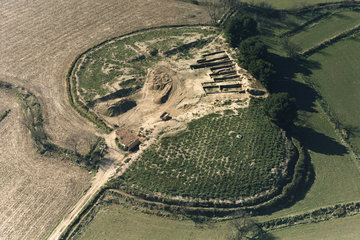In search of a golden age
The hunt for war treasure in the Philippines has hidden meanings
Illegal treasure-hunters continue to damage important archaeological sites across the Philippines in the hopes of striking rich. But the famous World War II treasure left behind by Japanese soldiers probably never existed. Instead the popular tale continues a much older folklore tradition, according to Piers Kelly from the Max Planck Institute for the Science of Human History in Jena, Germany in a new study published in The Journal of Folklore Research.
Many believe that enormous quantities of gold lie buried somewhere in the Philippines. According to a popular account, Japanese soldiers used the Philippines as a base to hide treasures they had plundered from regions under their control during World War II. At the close of the war, the treasure was left behind in several hiding places.
To this day, illegal treasure-hunters continue to damage important archaeological sites across the Philippines in the hopes of striking rich. Conspiracies abound, including allegations that high-level politicians have claimed treasure for themselves and kept the discovery quiet.
But the famous World War II treasure probably never existed, argues Piers Kelly, a linguistic anthropologist at the Max Planck Institute for the Science of Human History in Jena, Germany. In a paper published recently in The Journal of Folklore Research, Kelly claimed that the popular tale is simply a continuation of a long local tradition of folklore, which has its origins long before the war.
Treasure myths thrive in periods of crisis
“Since at least the nineteenth century Filipino story-tellers have shared tales of hidden valuables such as gold, church bells, silver coins and fine tableware”, Kelly explains. “By tracing variations of this story, we were able to show that their popularity coincides with periods of war and crisis. The promise of future wealth may have served to boost local morale.”
These legends are also used to make sense of extreme resource inequality. When a neighbour is unaccountably rich, Kelly argues, it is easier to imagine that they discovered treasure than it is to confront uncomfortable economic injustices.
In the present era of globalisation, lost treasure stories in the Philippines are also exchanged as a way of challenging a cultural 'inferiority complex' and of restoring a sense of national pride. The imagined gold plays the role of a future ‘golden age’ in which the Philippines overcomes its colonial past and is restored to greatness.
PM/MZ











